University College London (UCL) released its Academic Careers Framework, which provides information related to its promotion processes.
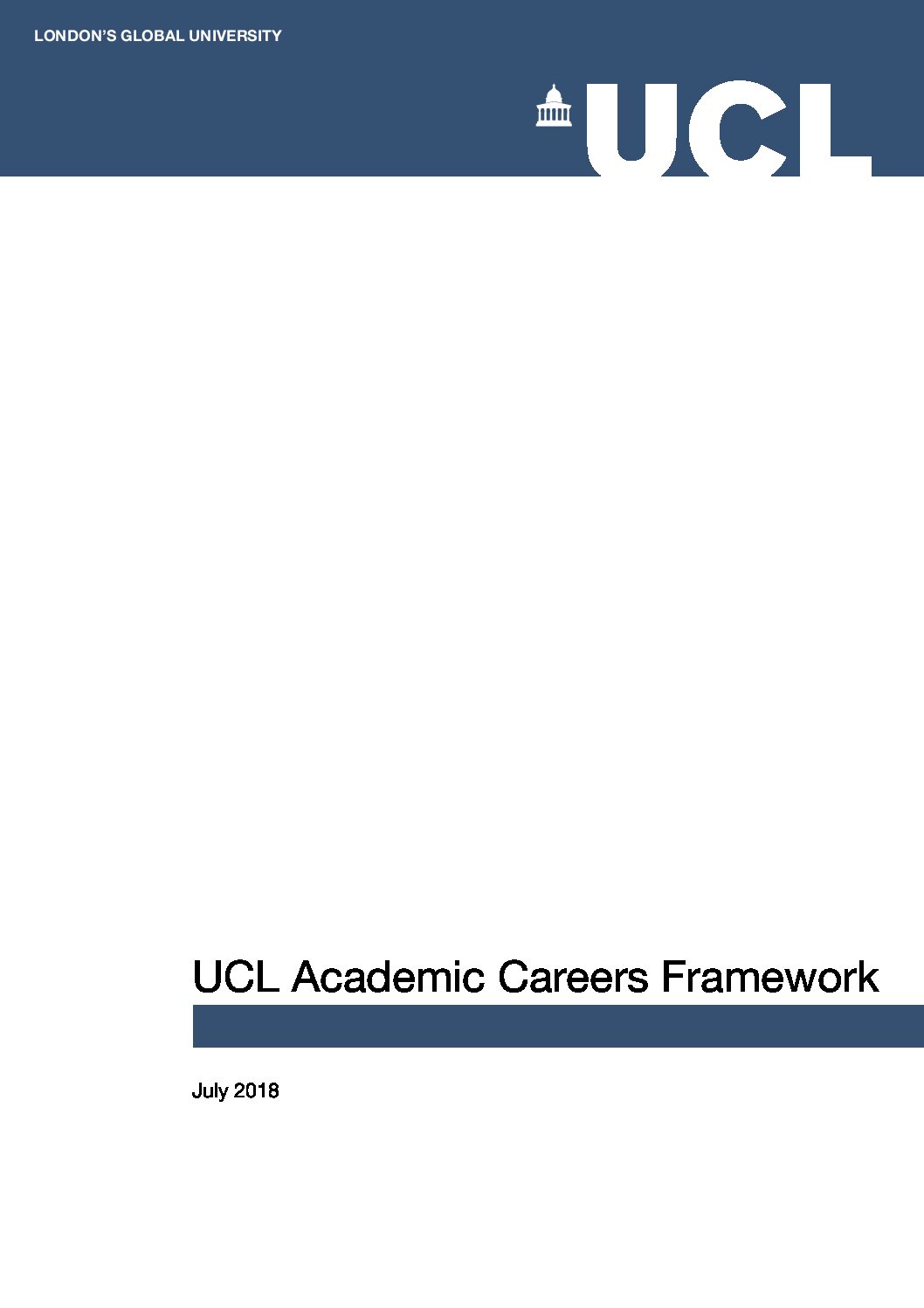

University College London (UCL) released its Academic Careers Framework, which provides information related to its promotion processes.
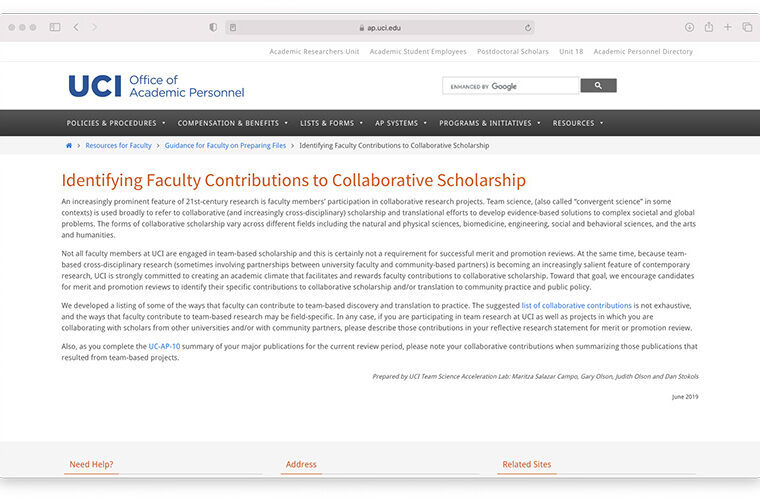
The University of California, Irvine developed guidance “Identifying Faculty Contributions to Collaborative Scholarship” to help faculty describe and assess team science.
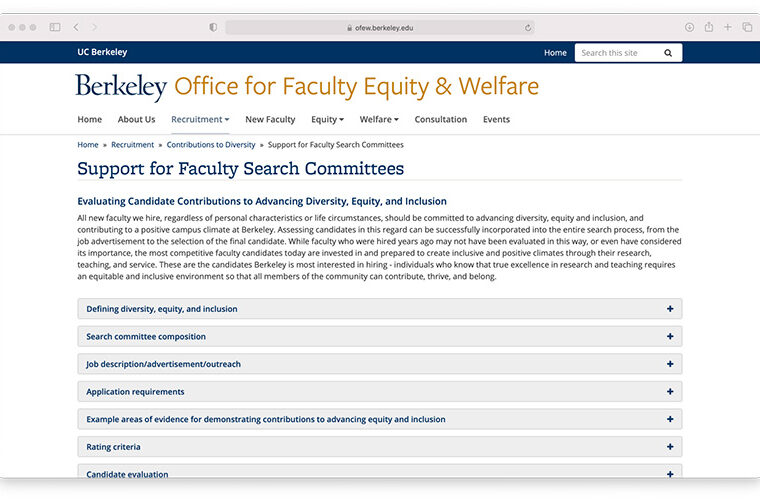
The Office for Faculty Equity & Welfare at the University of California, Berkeley provides support for faculty search committees to evaluate candidate contributions to advancing diversity, equity, and inclusion (DEI), including guidance for search committee composition, application requirements, rating criteria, and more.
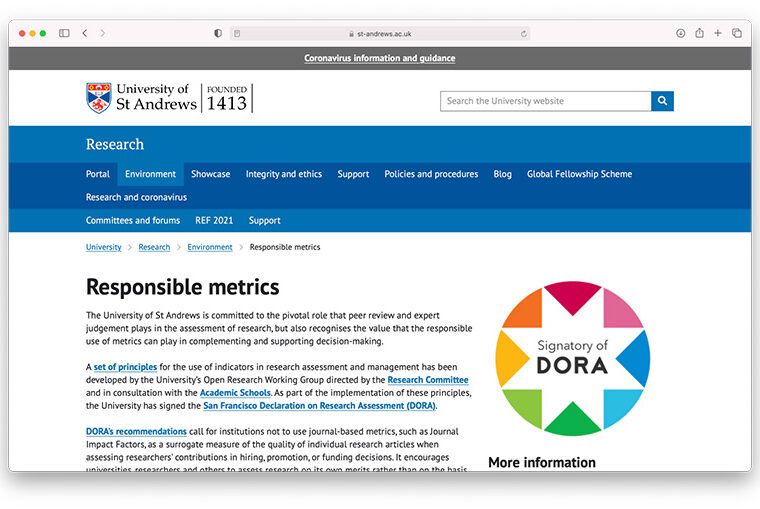
The Open Research Working Group on behalf of the Research Committee developed a set of five principles to guide the use of bibliometric indicators in research assessment, which include expertise, diversity, data, integrity, and transparency.
Glossary Research assessment is the process used to review researchers’ scholarly contributions, evaluating their quality,…
Glossary Academic system refers to the complex, deeply interconnected network of individuals, institutions, funders, publishers,…
Glossary Traditional assessment approaches are methods of evaluating scholarly work that have historically influenced what…
Glossary Traditional CV: An academic curriculum vitae that typically emphasizes quantity and prestige through a…
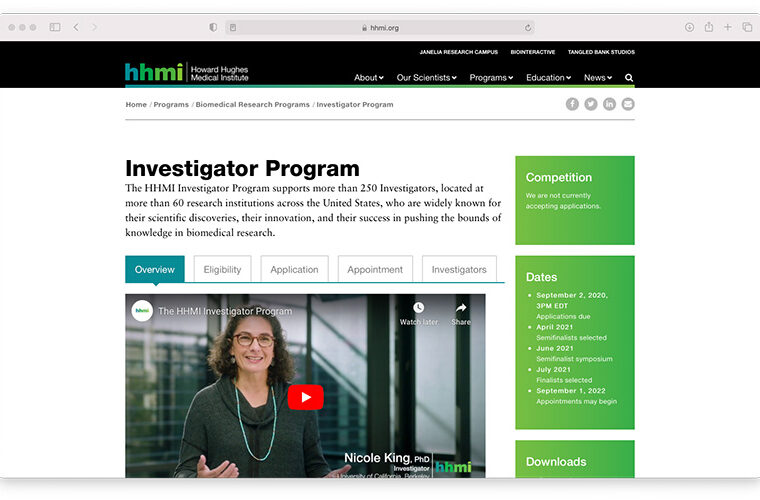
In keeping with HHMI’s commitment to basic scientific discovery, the Institute employs outstanding researchers for renewable seven-year terms as HHMI Investigators.
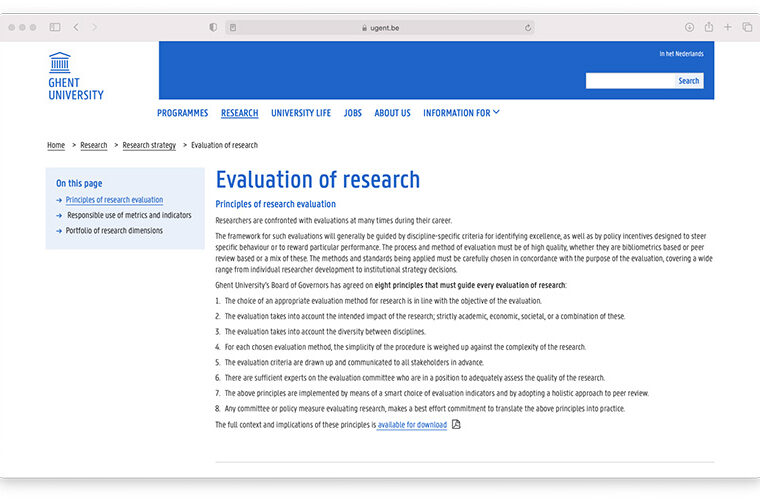
Ghent University published a vision statement for evaluating research based on eight principles agreed on by the University’s Board of Governors.